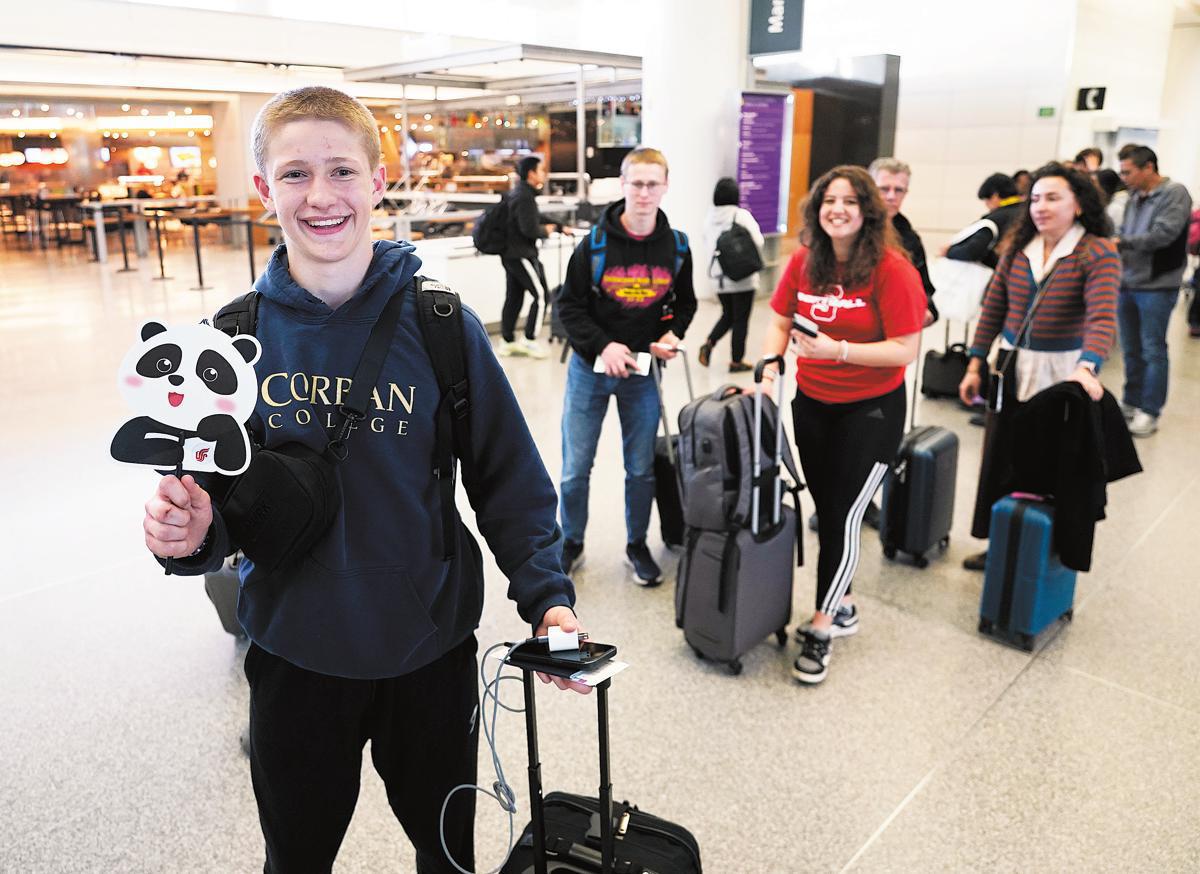Global educator calls for further Sino-US exchanges
By YIFAN XU in Washington | China Daily Global | Updated: 2024-03-19 09:22

The head of an international association of educators has said that her organization fully supports more educational exchanges and cooperation between the United States and China.
"There is no substitute for people-to-people exchanges, and China-US relations are very, very important," Fanta Aw, CEO of NAFSA, Association of International Educators, told China Daily. "The world needs those relationships to be strong. The students, faculty and scholars — we all benefit when we have those kinds of exchanges."
Aw said there is a long history of a "very robust" relationship between the two countries, though in recent times, it has experienced some bumps.
"I'm one who believes that given the long history of exchanges, there will be goodwill on both sides and that we both realize — all sides realize — that it is in everyone's interest. It is in the interest of the world, the US and China to maintain strong and good relationships. Healthy relationships and exchanges are very important," she said.
Aw was named executive director and CEO this year of the nonprofit membership-based association dedicated to international education and exchange. NAFSA's 10,000 members are from more than 3,500 higher education institutions in more than 150 countries.
The original name of the organization was National Association of Foreign Students. In 1990, it was formally renamed NAFSA, Association of International Educators.
Aw said that international education exchange "is vitally important".
"Education abroad is one of the ways that we can ensure a deeper appreciation of each other's culture," she said, emphasizing the significance of exchanges in the area of education, especially for young people, to see the whole picture of US-China relations.
She praised China for "having done quite a lot" to encourage Chinese students to learn English. She noted the trend of more bilingual education programs in US primary and secondary schools, including English-Mandarin programs.
"I think that's wonderful because those students in primary and secondary school may have picked up Mandarin, and then chances are that when they go to college, they will want to continue. Chances are that they're going to be the students most likely to say, I want to go to China and study," Aw said. "When they are working, they will be wonderful cultural translators. They will be wonderful ambassadors because they will be able to speak about issues with much more understanding of the culture and appreciation of the nuances of the culture.
"There are so many Chinese students who have told me about their experiences with their host families, and they've stayed in touch with their host families in different parts of the US, and they know about American life through their host families or their experiences with universities. That is incredibly important for that kind of lifelong bonds and friendships," she added.
Aw said that the language gap is one of the challenges in US-China educational cooperation and exchanges. For example, part of the difficulties has to do sometimes with the coverage of what is happening.
"There's often coverage that tends to depict China-US relations as very tense. What they don't often speak about is how, yes, there may be some tensions government-to-government, but the people-to-people relations remain," she said. "We still have many people who go to China. We have many people who come from China to the US. We don't talk enough about that."
Aw related the concept of "people-to-people exchange" to "education". "A lot of what I find as barriers have to do with education and ignorance. When people are ignorant, you always fear what you don't know. The more you're educated about it, the more you realize that we have so much in common," she said. "Awareness is very important. Experiencing it for yourself becomes very important. People-to-people exchange also happens through sports and entertainment. People-to-people exchange is education.
"So, for us at NAFSA, part of the way we want to be helpful is to ensure that universities are very aware of this. We want to ensure that we all work with the embassies, the different stakeholders, the universities, and all our partners to understand what will help facilitate that," she said.
























